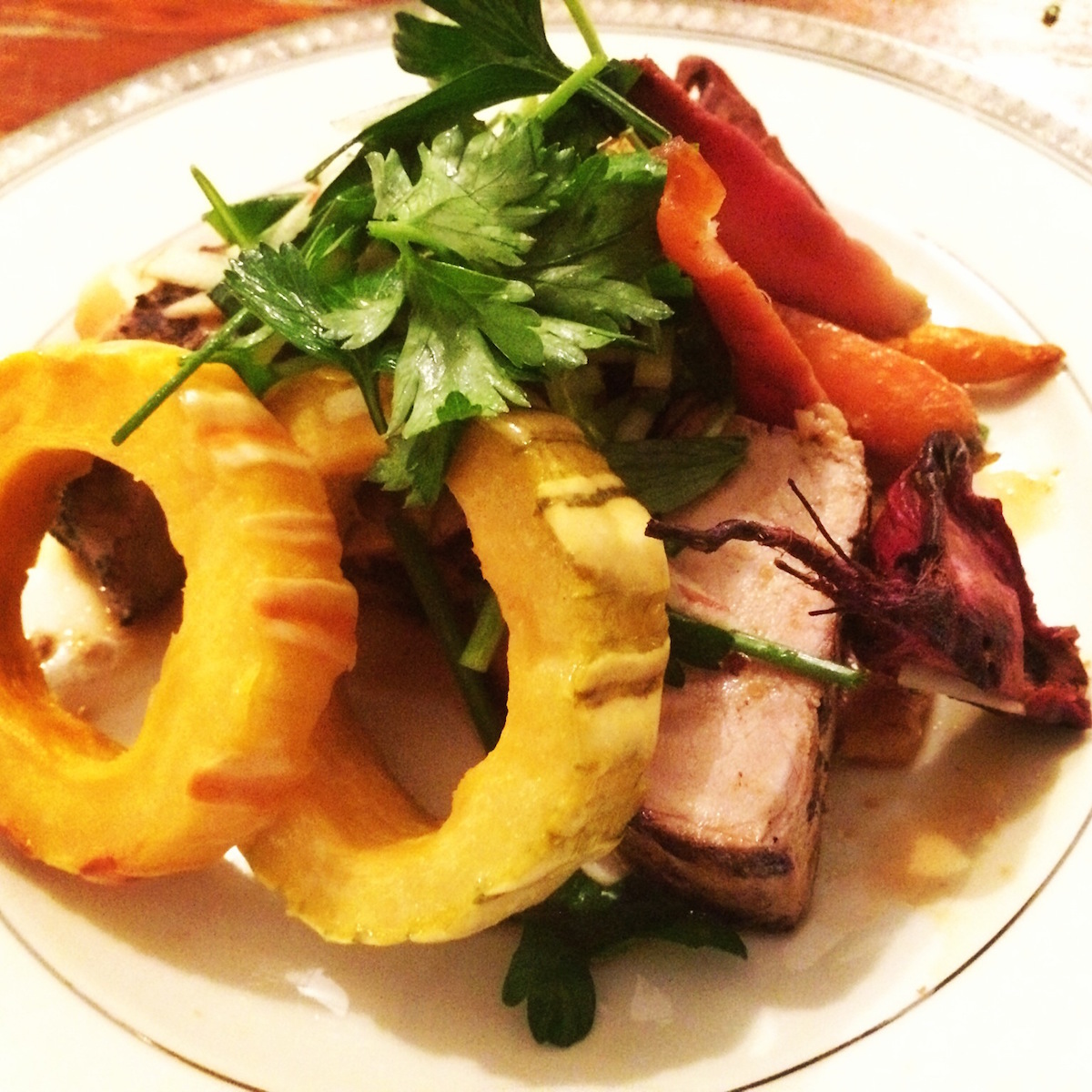Build Your Early Fall Wedding Menu

Heritage Pork Tenderloin with Cider Mustard Demi Glace, Root Vegetable Ragu, Delicata Squash Rings and Herb Salad / Courtesy photo
Going from summer into fall is always a touchy time. Do you bring out the light sweaters or just go with layers? SPF or no SPF? Full-on feasts, or are you still noshing on lighter fare?
No one knows this transition better than Kristen Campbell. As director of event sales and planning at Best of Boston winner Forklift Catering, she helps couples build menus for weddings held in late summer/early fall that utilize the best of both seasons. Here’s what she had to say about embracing autumn bounty while also holding onto summer.
What does fall approaching mean for wedding menus?
Fall in New England is the best! Couples looking to feature local produce are drawn to the harvest season, so they can take advantage of late summer gems like tomatoes, corn, peaches, and blackberries, while also incorporating squashes and other fall favorites. In many ways, this actually makes fall menus lighter since there are still so many fresh options. Many couples are also steering away from heavy sauces and toward ancient grains simply prepared with fresh vegetables and legumes. The nutty, earthy flavors add depth and substance without feeling heavy. Our “heavier” menus tend to kick in closer to November when people are really starting to look into winter.
What are some of your favorite vegetables in season?
Local farmers use techniques to help extend the seasons so we can enjoy these summer flavors longer. Farm fresh cucumbers, corn, green beans, and tomatoes are in season right now, and eating these is incomparable. Looking toward fall, we’re dreaming of fennel, root vegetables like beets and parsnips, and winter squashes like delicata and butternut squash. Fennel is a great transitional vegetable because you can shave it onto salad for something light on the warm days, or roast it for a deliciously warm side. Root vegetables are earthier, whereas squashes tend to lend sweetness. The flavors are representative of what our area has to offer as the days get shorter and colder. In the fall, we like these tossed with EVOO and lightly roasted or grilled, whereas in winter they become heavier dishes to keep us warm. Each has its own distinct flavor but is also adaptable to a number of different preparations.
Any fruits you like to use in the fall?
Apples, pears, quince, and cranberries are the staples for fall fruit dishes. We can also squeeze in some melons and grapes in the early fall, though we don’t see them featured in dishes as much.
What produce can we say goodbye to for fall?
Strawberries, blueberries, and cherries are out, as are asparagus, fava beans, and pea greens. Luckily, the New England growing season is fairly long, so a lot of our favorite beans, hearty greens, and more can be continuously planted for extended enjoyment.
What about meats that have reappeared after being gone all summer?
This year fall menus are all about smokiness. Guests want to enjoy the crisp air with a hint of wood fire, and this is being worked into the foods they select. A lot of the gamier meats such as duck and boar get requested, and occasionally even venison or goat. It’s also the kick-off to oyster season, and we New Englanders love our oysters!
What stories do you want to see in Boston Weddings? Send us tips at weddings@bostonmagazine.com.
Getting married? Start and end your wedding planning journey with Boston Weddings' guide to the best wedding vendors in the city.


